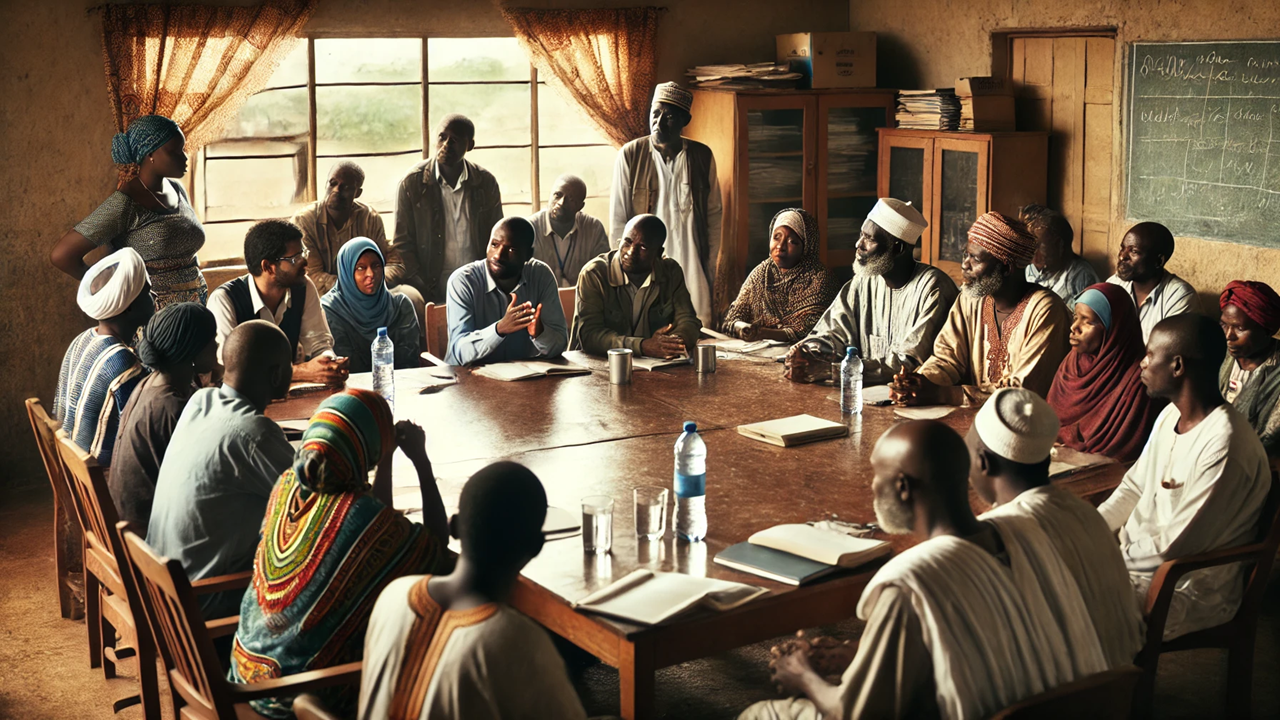Building Better Lives: The Struggle for Decent Working Conditions for Local Government Workers Across Africa
The ILO report “Working Conditions of Subnational Government Workers in Selected African Countries” explores the challenges faced by local government workers in six African nations. The report highlights significant disparities in labor relations and institutional frameworks, with a particular focus on the hardships faced by women workers. It calls for a multi-pronged approach to improving working conditions, emphasizing the need for stronger legal frameworks, better enforcement, and greater gender equality.

In six diverse African nations—Cameroon, Ghana, Kenya, Morocco, Mozambique, and South Africa—the drive to improve working conditions for local and regional government (LRG) workers is both a critical and complex endeavor. These workers, often the backbone of public service delivery, face numerous challenges, from low wages to limited access to social protection. The International Labour Organization (ILO) Working Paper, titled “Working Conditions of Subnational Government Workers in Selected African Countries”, provides an in-depth examination of the institutional and labor relations regimes in these countries, offering a blueprint for how to foster better working conditions.
Diverse Challenges, Shared Struggles
The effectiveness of labor relations and institutional frameworks varies significantly across these six countries, shaped by each nation’s unique historical, socio-economic, and political contexts. South Africa, for instance, has made considerable progress due to its strong legal framework and institutionalized collective bargaining mechanisms. However, despite these advancements, the implementation of these frameworks is often hampered by resource limitations and capacity constraints.
In Kenya and Mozambique, the establishment of formal structures for negotiating wages and working conditions represents a positive step forward. Yet, enforcement remains a significant challenge, with weak mechanisms failing to fully protect workers' rights. Morocco has embarked on a more participatory approach to local governance, which has started to yield benefits for LRG workers. However, for these benefits to be fully realized, labor rights must be more deeply embedded into these governance processes.
On the other hand, Cameroon and Ghana face substantial hurdles in improving the working conditions of their LRG workers. Weak enforcement, low union density, and restrictions on collective bargaining within the public sector create an environment where progress is slow and inconsistent.
Women Workers: The Unseen Disparity
Across all six countries, one of the most troubling aspects of the working conditions for LRG workers is the pervasive gender inequality. Women, who are often under-represented in decision-making roles, face additional barriers to advancement, including gender discrimination. These challenges are particularly pronounced in regions where cultural norms and inadequate enforcement of gender equality laws exacerbate the difficulties faced by female workers.
Despite being on the front lines of public service delivery, women LRG workers often earn lower wages and have less access to social protection compared to their male counterparts. This inequity not only undermines the principle of equal pay for equal work but also hinders broader efforts to achieve gender equality and empower women within these societies.
Towards a Brighter Future: Promising Practices and Recommendations
The ILO report does not just highlight the challenges; it also identifies several promising practices that could pave the way for significant improvements. These include capacity-building initiatives for labor unions, efforts to strengthen labor inspection systems, and innovative mechanisms to increase worker participation in decision-making processes.
One of the key recommendations from the report is the need for a multi-pronged approach to promoting decent working conditions. Strengthening institutional and legal frameworks is critical, as is enhancing the capacity of labor unions and other workers’ representatives. Improving enforcement mechanisms to ensure that existing labor laws are applied consistently and effectively is another essential step.
Moreover, the report underscores the importance of promoting gender equality and fostering a culture of social dialogue and worker participation. By creating an environment where workers, regardless of gender, can actively participate in the decision-making processes that affect their lives, these countries can make significant strides toward achieving decent and dignified working conditions for all.
A Call to Action
The findings of the ILO Working Paper serve as a call to action for governments, trade unions, employers, and other stakeholders across Africa. To build better lives for LRG workers, these groups must collaborate to ensure that the frameworks in place are not only robust but also effectively implemented. The goal is clear: to create a work environment where all LRG workers, particularly women, are valued, fairly compensated, and provided with the social protections they deserve.
This report is a reminder that while the challenges are significant, the opportunities for positive change are within reach. With concerted effort and a commitment to social justice, the dream of decent working conditions for LRG workers across Africa can become a reality.
- FIRST PUBLISHED IN:
- Devdiscourse
ALSO READ
Revitalizing Ties: India and South Africa's Trade Resurgence Post-Pandemic
Empowering Moves: Kung Fu Nuns Champion Gender Equality
South Africa Eyes WTC Glory Amidst Fragile Batting
Mizoram's Battle Against African Swine Fever: A Costly Crisis
South Africa's Bold Moves Against Pakistan in Series Decider










